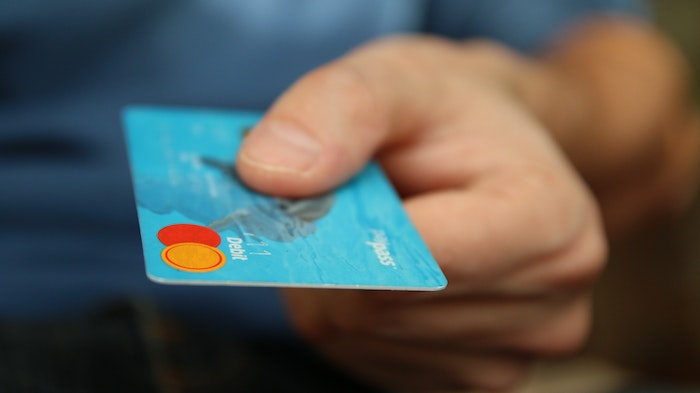
Cannabis, also known as “blow”, “dope” and marijuana amongst others is a drug derived from extracts of the Cannabis Sativa plant which contains its key chemical THC.
It has been used for thousands of years for both recreational and medicinal purposes due to the positive effects it has on people. Its leaves can be smoked or mixed with foods and consumed orally.
Cannabis is the second most used psychoactive drug in the UK after alcohol, with around half of all teenagers experimenting with the drug at some stage. This level of use has meant many people need cannabis addiction treatment, including cannabis rehab.
The positive effects it has on people include euphoria, relaxation, and changes in our perception of time along with an increased capacity for creativity. Smoking Cannabis leads to almost instant intoxication and its effects can last for 1 to 4 hours depending on how much has been smoked.
The risk of becoming addicted to Cannabis is low compared to other drugs and there is less physical harm done, however, anyone taking Cannabis over a long period of time will find it will negatively impact their psychological functioning and therefore other areas of their life such as career, education, sports and friendships.

It is commonly known that Cannabis causes temporary psychosis, which is where someone appears to have lost touch with reality signified by hallucinations, delusions and confusion and disturbed thoughts.
There is a risk however that some individuals can develop a psychotic illness after consuming Cannabis. Research has indicated that nearly 50% of patients receiving treatment for Cannabis induced psychosis went on to be diagnosed with Schizophrenia, with young males particularly vulnerable. (9,15,12)
Cannabis has also been noted as playing a significant role in the development of Schizophrenia as research has indicated individuals who consumed Cannabis at an early age tended to develop Schizophrenia earlier than those who do not take Cannabis. (15)
Regular Cannabis use has been associated with many negative long-term effects on an individual’s psychological capabilities, such as memory, perception, and motor control.
This can explain why adolescents who use Cannabis have problems in school and turn to crime, as Cannabis has reduced their ability to control their impulses and display the discipline and concentration necessary for studying. (10,15)
Many adolescents seek to experiment with Cannabis, but evidence suggests that they are particularly at risk of experiencing negative psychiatric consequences and anyone who has a pre-existing mental health condition may be at risk of their condition worsening. (9,10,12)
Excessive cannabis use has also been found to trigger panic attacks and irregular heartbeat and there is also a fear that it can lead to riskier drug use.

It’s important to be supportive, empathic and caring when it is apparent that a loved one is struggling with a Cannabis addiction. There may well be a high degree of denial, and resistance and they may not want to talk about it.
Going to a cannabis rehab is one option available, but not the only, or first option we would recommend.
It is important not to attach blame or be confrontational and issue ultimatums when interacting with your loved one as this can make the situation more inflammatory.
Below are some actions you can do to help your loved one:
It may be useful to research cannabis addiction and addiction in general to get an idea of what they are going through.
Advocates of the disease model (including Narcotics Anonymous (NA) view any addiction as a disease or illness that cannot be helped rather than a moral failure. Addiction is not a condition people can easily recover from by concentrating harder or making more of an effort
If your loved one will not talk to you then you can try and get them to talk to a GP or a representative from a community drug team.
You can also look for a NA meeting in your local area for your family member to attend if they do not want to talk to you. These meetings provide an opportunity for them to make human connections with other people struggling with Cannabis use.
Often, those affected by cannabis addiction will explore mutual support groups before they go to a cannabis rehab centre.
This will enable you to talk to people going through similar experiences, some of them may be further down the line than you so they can offer you a lot of valuable advice on how to cope with the situation, and help you support your loved one at this difficult time.
Nar Anon has a website you can visit for more information and also has an online chat feature where you can ask questions and remain anonymous. (13)
If they are still unable to accept that they have a problem or are resistant to entering treatment then you have the option of using a professional intervention to try and persuade your loved one to seek help.
There are various intervention approaches including CRAFT and ARISE which have been proven to be successful at persuading substance users into treatment, your GP and local substance misuse team will help you organise.

There are no detox treatments available for Cannabis use, any treatment will involve reducing withdrawal symptoms by targeting each specific symptom with appropriate medication.
There is a range of psychological interventions which are featured further on in this article that can be used to help people move forward from their Cannabis use.
The psychological interventions used for each person will be based on the information they provide during the assessment phase, although the range of treatments offered is similar for each client, for example, CBT, group therapy and the 12-step programme.
These have proven to be very effective in helping people understand why they became addicted to Cannabis and in providing tools and strategies to them recover. (12)

DSM5 sets out 11 criteria to assess the severity of a person’s Cannabis use.
The severity of the diagnosis depends on how many of the 11 criteria a person is judged to have met, the three categories of severity are shown below:
The 11 DSM5 criteria seek to investigate aspects of an individual’s Cannabis use over a 12-month period, the type of information they are interested in to help with the diagnosis includes:
If you are concerned that a family member has developed a Cannabis addiction or is consuming Cannabis at levels that may lead to an addiction in the future, then it is important to do something about it before their condition deteriorates further.
There are screening tools available for people to establish if someone is addicted to Cannabis and if so, the severity of their Cannabis use, and after analysing their responses to these tools medical practitioners will offer guidance on the next course of action. (10,12)
The main screening tool used for Cannabis use is the CUDIT R questionnaire which comprises 8 questions.
The questions seek to gather information on the pattern of the Cannabis behaviour, including the amount taken, the amount of time spent stoned, whether the person was able to stop using cannabis and if they experience any cognitive impairments after using Cannabis.
Each response requires a rating between 0-4, with 4 indicating problematic use, a questionnaire with a score over 8 would indicate hazardous Cannabis use whereas 12 and over would indicate a Cannabis Use Disorder.
This would result in a referral to a GP or substance misuse professionals to receive specialist treatment.

There is a noticeable prevalence in the number of people who have been diagnosed with another mental health condition alongside their Cannabis use Disorder, if this is the case then they are classed as dual diagnosis patients.
Many people who use Cannabis tend to have depression and anxiety-based conditions which may lead to them using Cannabis in order to alleviate their uncomfortable physical and psychological symptoms by making them feel calmer. Cannabis use itself can also make any pre-existing mental health condition worse.
Rehab centres offering interventions for dual diagnosis patients are experienced in treating both the mental health condition and Cannabis use and will also understand how the two conditions interact with each other, this will help break the Cannabis dependency cycle that has developed.
It is essential for substance misuse experts to treat both Cannabis Use and mental health condition simultaneously rather than separately one after the other. (9,10,12)
Cannabis dependency is not seen to be as harmful as opioid drugs and alcohol however anyone who stops taking Cannabis after a period of prolonged will experience uncomfortable withdrawal symptoms.
The withdrawal symptoms people can expect to experience when coming off Cannabis include irritability, anger, anxiety, depressed mood, restlessness, difficulty sleeping, and physical symptoms such as headaches, fever, sweating, stomach pain and tremors.
There is no detox treatment available for Cannabis dependency to alleviate withdrawal symptoms so the medical staff at rehab centres will use separate medication to combat each individual symptom.
However, there are strategies that can be used to manage the withdrawal symptoms if they become too uncomfortable, for example:
If you experience any flu-like symptoms when withdrawing you should rest, keep warm, drink plenty of fluids and take an over-the-counter medicine such as paracetamol to alleviate any aches and pains
Your sleep patterns can be disrupted when attempting withdrawal so establishing a consistent sleep routine is important to try to ensure you are feeling relaxed in the 3-hour period prior to bedtime.
This may involve having a bath, reading or listening to music. On the other hand, drinking alcohol, exercising and playing computer games may reduce the quality of sleep.
It is important to find new ways to cope with your anxiety as Cannabis does help to make people more relaxed so giving up the drug will mean you need to find other ways to cope with anxiety.
Exercise is a great way to reduce anxiety as is engaging in a new activity, such as art or cookery.
There are also mindfulness classes you can attend where you can learn about the practice of meditation and learn how to switch your mind off from any intrusive thoughts that trigger anxiety

The main factors that determine how much Cannabis treatment would cost are the location of the treatment centre you choose to stay, how long you stay in treatment, and whether you stay in a single or multi-occupancy room during your stay.
People can expect to stay in residential rehab for up to 4 weeks and sharing a multi-occupancy room with others for this period time would cost in the region of £6,000.
If however, it was their preference to have a room to themselves then they would find themselves paying £8-12,000 for the same period depending on their choice of location.
The cost would be different if you stayed for a longer or shorter period of time which is dependent on your treatment needs. You can gain a more accurate estimate of your overall cost by contacting our team to discuss your own personal treatment needs
You can expect to stay in rehab for Cannabis dependence for a period of 4 weeks, which is deemed to be the most suitable duration to fully engage with the psychological therapies on your treatment plan and to absorb all the information from the educational components of your programme such as relapse prevention.
There is no detox treatment available for Cannabis, so the duration of treatment programmes tends to be very similar for all clients in rehab, which might not be the case for those receiving treatment for alcohol and opioid misuse

According to the cognitive model, there is a strong link between thoughts, feelings and behaviour and many people who become addicted to Cannabis have developed unhealthy and inaccurate thought patterns about themselves and the way they perceive events in their lives.
They may believe that Cannabis is the only way that they can relax.
CBT will help clients challenge these inaccurate beliefs so that they can see there are other ways they can relax apart from taking Cannabis.
The therapist will be able to help the client see that their negative self-perception is inaccurate so that they will be able to gain a more favourable view of themselves, which should help to reduce their anxiety. (1)
MDFT is a form of family therapy that has proven to be particularly effective in the area of substance misuse. MDFT recognises the extent to which problematic family dynamics and wider societal factors can impact negatively people and lead to substance misuse
MDFT therapists will work on 4 separate domains of a person’s life, these being the individual concerned (including strengths as well as challenges), the parents and other significant family members, the communication patterns between family members and other social influences on a person’s life such as school or college, sports teams and religious institutions.
These 4 domains have been recognised by researchers as significant contributory factors to the development of substance misuse problems in adolescents
Understanding how key influences in each domain have shaped the adolescent’s drug-taking is seen as critical in enabling positive change to occur. (8)
MI is a form of brief therapy which is used when a client is stuck in one of the stages in the Stages of Change Model developed by Prochaska and Di Clemente, this could be because of a small element of resistance and uncertainty about giving up their substance use has appeared in the client.
It is absolutely essential for the therapist to build a strong, positive relationship known as a “therapeutic alliance” with the client and show support and empathy throughout their sessions otherwise the client will resist change even more
The role of the therapist is to guide an open discussion with the client about their Cannabis taking behaviour and to explore the positive and negative aspects of taking Cannabis.
When used effectively MI sets the conditions to allow the client to understand what they should do next and to pinpoint where any resistance comes from, this allows them to find the motivation to change their behaviour and give up substances. (11)
Contingency management strategies have an important role to play in helping substance misusers give up the drug they are dependent on. It is based on the principles of behavioural psychology and many researchers advocate its use in rehab clinics, as its principles are based on strong evidence.
The key principle of CM is that clients who demonstrate positive behaviour changes in their substance misuse should be rewarded for this change.
Rewarding any positive behaviour will psychologically reinforce the behaviour so the person will be more likely to engage in positive behaviour in the future, the sooner the reward is provided after the behaviour the stronger the likelihood is that it will reinforce the behaviour.
An example of a behaviour that can be rewarded is when a client produces a clean drugs test, this is clear evidence of their hard work in trying to give up Cannabis.
The type of incentives that have been proposed to be successful include money and vouchers for goods. (14)
It is not uncommon for substance misusers to find managing relationships challenging. This could be because of difficulties in early family life or due to a breakdown in the attachment process with their early caregivers.
This may have led to substance misuse which may have furthered hampered their ability to form good relationships
Engaging in group therapy will help substance users re-connect with their fellow humans as it will allow them to share their stories and listen to the life history of others which further strengthens their bond.
Over time this will hopefully provide all group members with a sense of belonging, which has been identified as a fundamental human need. (6)
Group members can learn social skills such as empathy and the importance of understanding the perspective of others by having regular group therapy sessions. (19)
Twelve-step therapy is based on the 12-step programme developed by Alcoholics Anonymous. The therapy involves guiding clients through a series of reflective challenges that will help them understand and accept their substance misuse behaviour.
When this has been achieved, they will be able to progress towards spiritual and emotional growth which will put them in a strong position to give up the drug and live a more fulfilling life.
Some of the steps include accepting one’s powerlessness over their behaviour, engaging in critical self-reflection on their behaviour and character, identifying who they have harmed and making amends and finding a higher power to guide them towards recovery
As has been mentioned previously many substance misusers have found difficulty in forming relationships with others.
IPT will help clients understand their own internal psychological and socio-cognitive processes and learn how to develop emotional and social skills to form better relationships with others.
This form of therapy has been very effective in helping clients with depression and mood disorders who have used Cannabis to help them cope with their low mood and emotional state
IPT is a structured approach that takes place over a specific timeframe where the therapist and client will work together to identify the client’s current interaction patterns and, once these have been identified they will begin to develop strategies to improve the quality of their relationships. (3)
The main premise of ACT is to help clients psychologically engage with the emotional difficulties and cognitive barriers that keep fuelling their substance use.
The theory behind ACT is that even though suppressing anger and uncomfortable emotions in the short term is beneficial over the long term this approach can be counterproductive.
ACT therapists work with clients to help them acknowledge and process these uncomfortable feelings and find alternative strategies to help them deal with them.
This is achieved by helping clients get in touch with their own personal values and helping them understand the nature of the language they use to describe themselves and their lives.
This helps them find new ways of dealing with negative emotions when they arise, which leads to more effective coping responses and greater resilience. (3,16)
Relapse prevention (RP) is an essential part of a client’s treatment programme as it will arm them with the cognitive skills they can implement themselves once they have left treatment and are back out into the world.
RP involves identifying a range of high-risk situations in which someone may be tempted to consume Cannabis again.
The therapist you work with will help you review your substance misuse history and enable you to reflect on the main influences on your drug-taking, this could involve for example certain people, locations, situations, events or even your own feelings.
Once these high-risk situations have been identified clients can work with their therapist to develop and rehearse specific strategies to implement when these high-risk situations arise.
Some people may find social occasions where they know people who they smoke Cannabis with will be present, whereas others may feel they are more vulnerable to relapsing when they are feeling tired, hungry, or angry. (5)

Your local GP and NHS service are reliable places to visit to receive advice about the steps you can take if you or a family member is struggling with Cannabis addiction as it is a widely used drug that they have a lot of experience in dealing with.
If they cannot treat you or your relative themselves then they will certainly be able to signpost you to a service that will be able to help you as they will be aware of all the relevant services in the area.
There are many support groups throughout the country that offer support, advice and guidance for people seeking to recover from Cannabis addiction, there is no payment except minor contributions to cover basic costs.
Narcotics Anonymous (NA) and Marijuana Anonymous meetings are set up to help recovery from drug addiction, although Marijuana Anonymous will tailor its support and meetings for those with Cannabis addiction.
There are also Nar Anon meetings available to support friends and family members of Cannabis users and Nara Teen meetings for teenagers who have been negatively impacted by a relative’s excessive Cannabis use

There are many services available to provide support, educational classes and possibly counselling relating to Cannabis addiction throughout the country, but it is dependent on the area in which you live.
Your local GP and NHS service will have the contact details for such services as they are excellent at referring people to specialist services.
SMART Recovery is a national charity that operates a free recovery service for those individuals seeking to give up Cannabis and move forward with their lives.
They have an army of trained facilitators who will guide you through their recovery programme, which aims to provide clients with the cognitive skills necessary to avoid triggers and cope with anxiety more effectively whilst also enhancing their self-development.
Call now on 0800 140 4690 for confidential and immediate advice.
(1) Bennett, P. (2003) Behavioural and Cognitive Behavioural Approaches to Substance Misuse Treatment in Peterson, T. & McBride, A. (ed) Working with Substance Misusers: A Guide to Theory and Practice London. Routledge.
(2) Black, D., Grant, J. (2013) DSM5 Guidebook: The Essential Companion to Diagnostic and Statistical Manual of Mental Disorders, 5th Edition. APP. London
(3) British Association of Counselling and Psychotherapy (2021) Types of Therapy: An A-Z of Therapeutic Approaches. Available @Types of counselling and psychotherapy (bacp.co.uk)
(4) Flores, P. (2004) Addiction as An Attachment Disorder. Jason Aronson. Maryland (USA)
(5) Gossop, M. (2003) Relapse Prevention in Peterson, T. & McBride, A. (ed) Working with Substance Misusers: A Guide to Theory and Practice London. Routledge.
(6) Gross, R. (1987) The Science of Mind and Behaviour.
(7) Herie, A.M., Watkin-Merek, L. (2014) Relapse Prevention. in Herie, A.M. & Skinner, W. (ed) Fundamentals of Addiction: A Practical Guide for Counsellors. CAMH. Canada
(8) Hogue, A., Dauber, S. (2006) Treatment Techniques and Outcomes in Multi-dimensional family therapy for adolescent behaviour problems. Journal of Family Psychology. December. 20(4) pp535-543. Available @ Treatment Techniques and Outcomes in Multidimensional Family Therapy for Adolescent Behavior Problems (nih.gov)
(9) Hughes, L. (2010) Cannabis Use and Psychosis. In Phillips, P., Mckeown, O. Sandford, T. Dual Diagnosis: Practice in Context. Wiley-Blackwell. Chichester
(10) Kahan, M. (2014) Physical Effects of Alcohol and Other Drugs. In Herie, M. & Skinner, W. (ed) Fundamentals of Addiction: A Practical Guide for Counsellors. CAMH. Canada
(11) Miller, W. & Rollnick, S. (1991) Motivational Interviewing: Preparing to Change Addictive Behaviour. Guilford Press. New York
(12) Moss, A, Dyer, K (2010) The Psychology of Addictive Behaviour. Palgrave McMillan. New York
(13) Nar Anon (2022) Nar Anon Family Groups: A 12 Step Program for Family and Friends of Addicts available@ Nar-Anon Family Groups
(14) Petry, N. (2011) Contingency Management: What it is and why psychiatrists should want to use it The Psychiatrist. May 35 (5) p161-163
(15) Solowij, N. (1998) Cannabis and Cognitive Functioning. Cambridge University Press. Cambridge
(16) Wilson, K. Hayes, S., Byrd, M. (2000) Exploring Compatibilities between Acceptance and Commitment Therapy and 12 Step treatment for substance abuse. Journal of Rational-Emotive and Cognitive Behaviour Therapy. Volume 18, number 4 pp209-234
(17) Tsanos, A. (2014) Concurrent Disorders in Herie, A. & Skinner, W. (ed) Fundamentals of Addiction: A Practical Guide for Counsellors. CAMH. Canada
(18) Williams, C. (2003) 12 Step Approaches in Peterson, T. & McBride, A. (ed) Working with Substance Misusers: A Guide to Theory and Practice London. Routledge.
(19) Yalom, I.D. (1995) The Theory and Practice of Group Psychotherapy